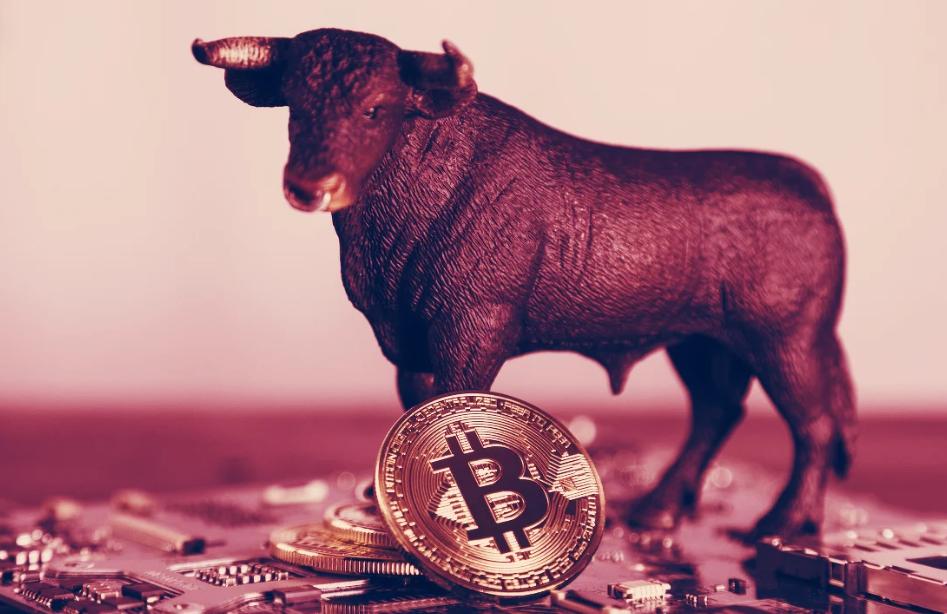Highlights of the Miami Bitcoin 2022 Conference: Mayor Unveils "Miami Bull," Financial Tycoon Reflects on Fun Moments in the Crypto Space
Author: Bai Ze Research Institute
From April 6 to 9, 2022, the world's largest Bitcoin conference, "Bitcoin 2022," was held in Miami, USA, attracting over 35,000 attendees, including numerous politicians, crypto companies, financial giants, tech elites, and industry celebrities from around the globe. More than 400 financial companies and crypto enterprises sponsored the event, including Visa, Mastercard, Galaxy Digital, Paxos, and others.
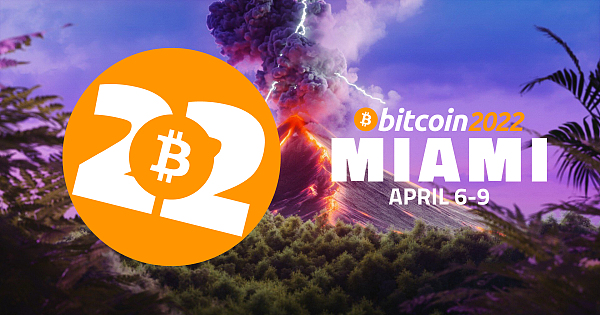
The conference covered a wide range of topics, from how traditional financial systems, institutions, and infrastructure integrate with Bitcoin to detailed explorations of mining, as well as discussions on regulatory pain points in the crypto industry, policy predictions, guidance on compliance costs for crypto companies, and macro dialogues on how the crypto industry can develop within regulatory frameworks.
At last year's "Bitcoin 2021" conference, El Salvador's President Bukele announced plans to make Bitcoin legal tender in his country, a news that instantly ignited global interest; speeches by former Twitter CEO Jack Dorsey and Tesla CEO Elon Musk also added brilliance to the event. Various signs indicate that cryptocurrencies, once labeled as unconventional, are slowly being accepted by the mainstream or have already attracted sufficient attention.
So what were the highlights of this year's Bitcoin conference?
Miami Mayor Unveils the "Miami Bull" Statue
To commemorate the opening of the Bitcoin 2022 conference, Miami Mayor Francis Suarez unveiled a bull statue, an 11-foot-tall, 3,000-pound mechanical bull resembling the Wall Street bull, symbolizing Miami's emergence as the "Crypto Capital of the World."
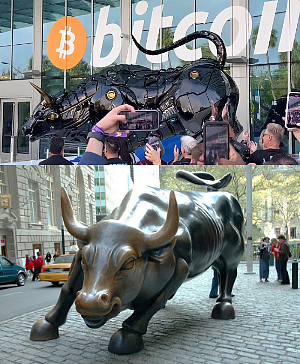
Cash App: Users Can Now Invest Their Salaries in Bitcoin
Miles Suter, the Bitcoin product lead at Cash App, operated by Block (formerly Square), announced at the conference that U.S. customers can automatically invest a portion (or all) of their deposits into Bitcoin.
This feature, called
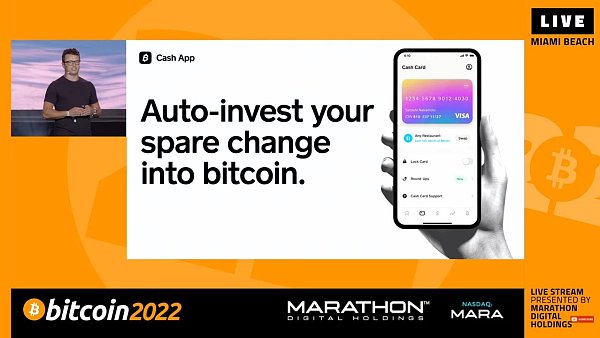
Earlier this year, Cash App announced the integration of the Bitcoin Lightning Network, aiming to enable users to make instant, low-cost Bitcoin payments for services or goods. In the near future, Cash App's U.S. users (excluding New York State) will officially be able to use this feature.
Note: The Lightning Network is a second-layer network built on Bitcoin that enables faster and cheaper transactions.
Michael Saylor Shares Fun Stories About Entering Bitcoin
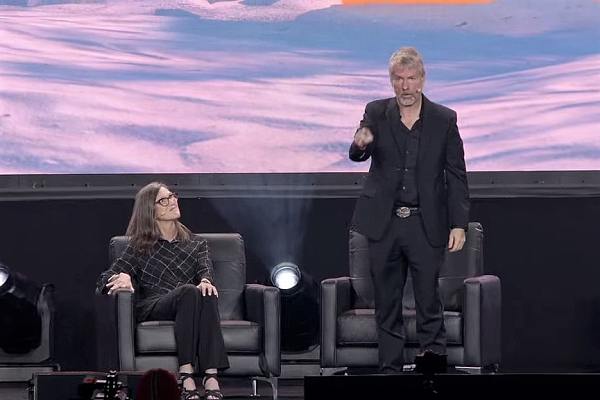
MicroStrategy CEO Michael Saylor, in a fireside chat with ARK CEO Cathie Wood, recounted how he was laughed off by one of the world's largest retail brokerage and investment banks, Merrill Lynch, when he first invested in Bitcoin two years ago:
"They said, 'Not only will we not sell it to you, but if we talk about it, we will be fired,' so I immediately wired $175 million to another bank."
However, MicroStrategy currently holds over 125,000 Bitcoins, worth approximately $6 billion, and sometimes he sees cryptocurrency research reports from Merrill Lynch in his inbox.
Saylor and Wood: The Future of Cryptocurrency is Bright Due to Regulation
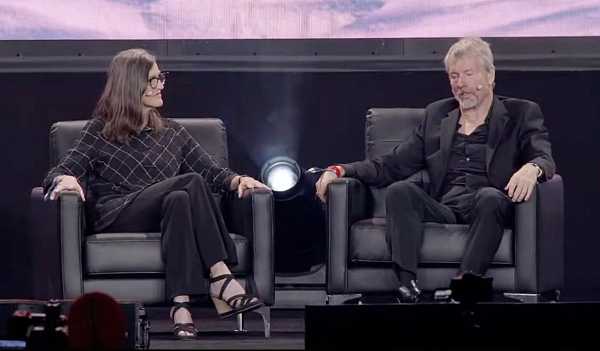
Saylor and Wood both spoke optimistically about the future of cryptocurrency. Notably, both expressed support for the recent regulatory developments surrounding cryptocurrency, believing that regulation will make the future of the crypto industry brighter.
Saylor specifically pointed out, "I think the U.S. government's attitude has turned 180 degrees in the past year… A few weeks ago, the presidential executive order, I think the U.S. president has given the green light to Bitcoin."
Wood agreed, stating that since she first started investing in Bitcoin, the political attitude surrounding it has fundamentally changed, especially in the months following the Biden administration's inauguration, "Politicians come to me wanting me to gather a group of Bitcoin enthusiasts and learn from them."
She contrasted U.S. Treasury Secretary Janet Yellen's initial statements about cryptocurrency (describing it as a tool for money laundering used by criminals) with the recent discussions about cryptocurrency, noting that while Yellen still maintains a cautious stance, she acknowledges the innovative advantages of cryptocurrency and blockchain.
"Father of Smart Contracts": Bitcoin Represents the Pinnacle of Cryptography and Privacy Research
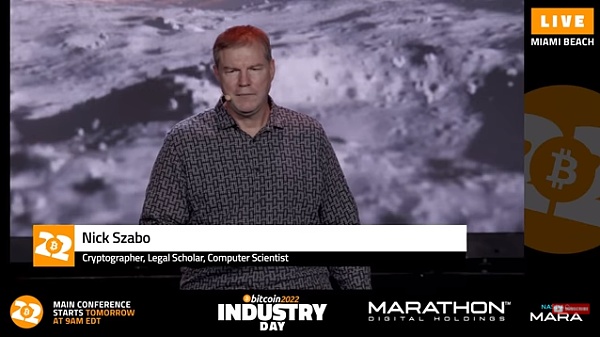
Nick Szabo, a computer scientist and cryptography expert, first proposed the concept of "smart contracts" in 1996 and designed a decentralized digital currency called Bit Gold in 1998. Although Bit Gold was never implemented, it is widely regarded as "a direct precursor to the Bitcoin architecture."
At the Bitcoin 2022 conference, Szabo spoke to attendees about the history of cryptography before the invention of Bitcoin:
Most cryptographic work before the 1970s was conducted secretly by the military or intelligence agencies. This changed in the 1980s when Dr. David Chaum published papers on anonymous digital currencies and anonymous reputation systems.
The current cryptographic movement emerged from Chaum's work, led by an organization known as the cypherpunks, who were pioneers in the field of applied cryptography. "The cypherpunks wanted to liberate cryptography from government control and bring it to the masses," Szabo said, adding that they represented a private, non-governmental, and non-political movement.
The cypherpunks had "forward-thinking" ideas, beginning to explore how to protect people's privacy and how to transition communication and payments from the physical world to the digital world in an era of underdeveloped technology.
Thus, he referred to Bitcoin as "the culmination of decades of research in cryptography, freedom, and privacy."
Mexico's Third Richest Man: 60% of My Portfolio is Bitcoin and Bitcoin Stocks
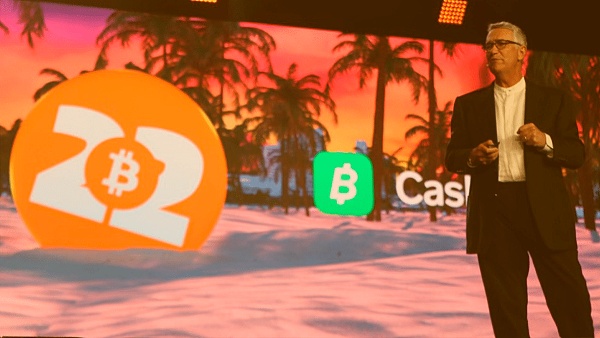
Ricardo Benjamín Salinas Pliego is the founder and chairman of the Mexican company Grupo Salinas and is currently Mexico's third richest person. According to Forbes, as of April 8, he is the 158th richest person in the world, with a net worth of approximately $12.7 billion.
In a panel discussion, Salinas expressed his "hatred" for fiat currency, citing his personal experience with hyperinflation in Mexico, and warned attendees that hyperinflation could also spread to the United States.
Additionally, Salinas explained why he dislikes bonds and mentioned his liquidity portfolio:
"I'm sure some of you are counting on your pensions and investment bonds, which is very dangerous because things can change at any moment. I have a liquidity portfolio, and I hold 60% in Bitcoin and Bitcoin stocks, and then 40% in hard assets like oil, gas, and gold."
It is reported that Salinas first revealed on Twitter in November 2020 that he had invested 10% of his liquid assets in Bitcoin.
Strike Announces New Partnership: Allowing U.S. Merchants to Accept Bitcoin via the Lightning Network
Jack Mallers, CEO of crypto payment provider Strike, announced a new partnership at the conference with e-commerce giant Shopify, aimed at enabling U.S. e-commerce merchants to receive Bitcoin payments from users worldwide. Additionally, Strike has partnered with NCR, the world's largest POS provider, and payment company Blackhawk to facilitate the smooth integration of merchants with Strike and Shopify.
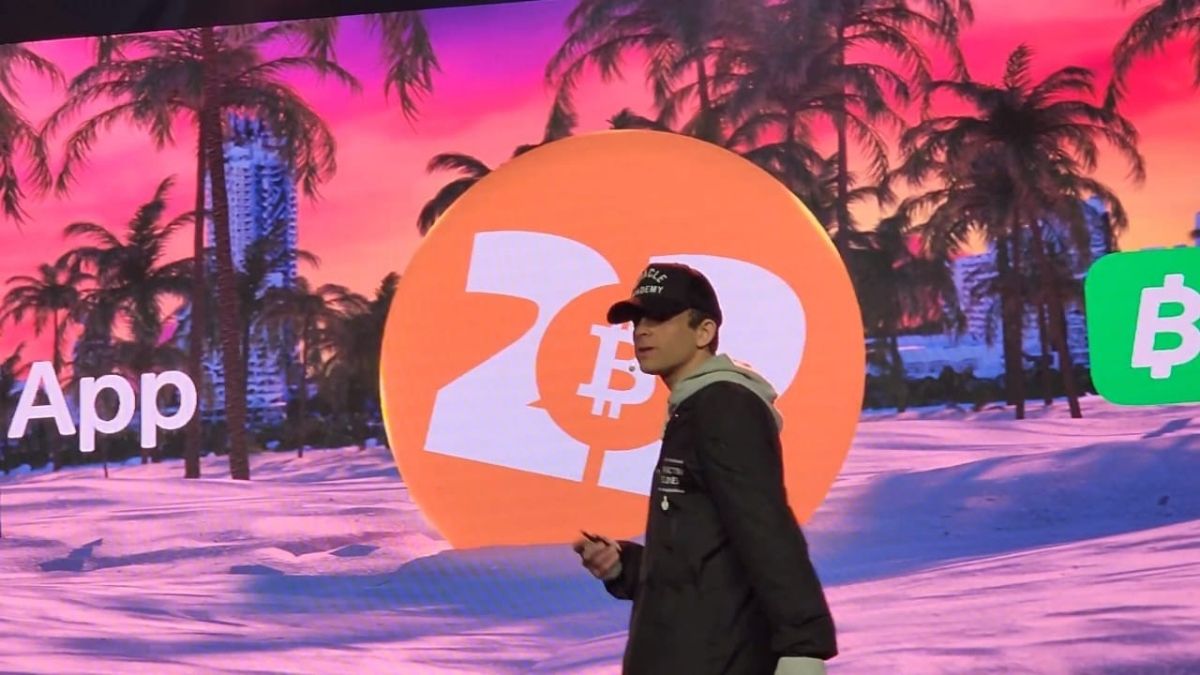
Notably, this service will utilize the Bitcoin Lightning Network, and the Bitcoin received by merchants will be automatically converted into fiat currency. Although technically, this service still settles in fiat currency, the Bitcoin Lightning Network allows consumers from anywhere in the world to use the service.
Robinhood's Crypto Wallet Officially Launched, Integrating Bitcoin Lightning Network
Aparna Chennapragada, Chief Product Officer at Robinhood, announced at the conference that over 2 million customers who joined the waitlist can now use the crypto wallet feature on the platform to send and receive cryptocurrencies. Furthermore, Robinhood plans to introduce the Bitcoin Lightning Network to its platform to accelerate Bitcoin transactions.
Aparna stated, "With the wallet, customers will have full access to their cryptocurrencies and can use cryptocurrencies to participate in the crypto ecosystem—such as tipping on social media, buying NFTs, and more. Unlike some other cryptocurrency trading platforms, withdrawing cryptocurrencies from Robinhood is free."
Previously, Robinhood users could only trade cryptocurrencies, which were held by Robinhood, and users could not withdraw cryptocurrencies.
As the most commonly purchased asset by customers on the platform this year—Bitcoin—Robinhood will soon support the Lightning Network: "Because these transactions occur 'off-chain,' Lightning Network transactions can be reduced to a few seconds, with transaction fees only a few cents, saving customers time and money."
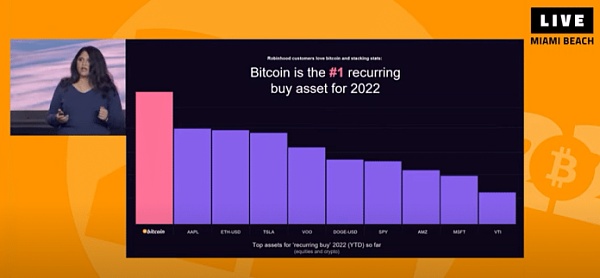
Blockstream and Block to Use Tesla Equipment for Solar Mining
The environmental impact of Bitcoin mining has long been controversial, especially after Elon Musk canceled the ability to purchase Tesla cars with Bitcoin last May, citing "high carbon emissions from Bitcoin mining," which reignited the debate.
A month later, Blockstream, the world's largest Bitcoin infrastructure company, partnered with financial services company Block (formerly Square) to verify whether a facility could be built to mine Bitcoin using solar energy, demonstrating that Bitcoin mining can utilize "renewable energy."
At the conference, the two companies announced that they would use Tesla's solar photovoltaic arrays and Tesla Megapack to power the solar mining facility. Tesla's solar photovoltaic arrays are Tesla's solar panels, while Tesla Megapack is a large rechargeable lithium-ion battery.
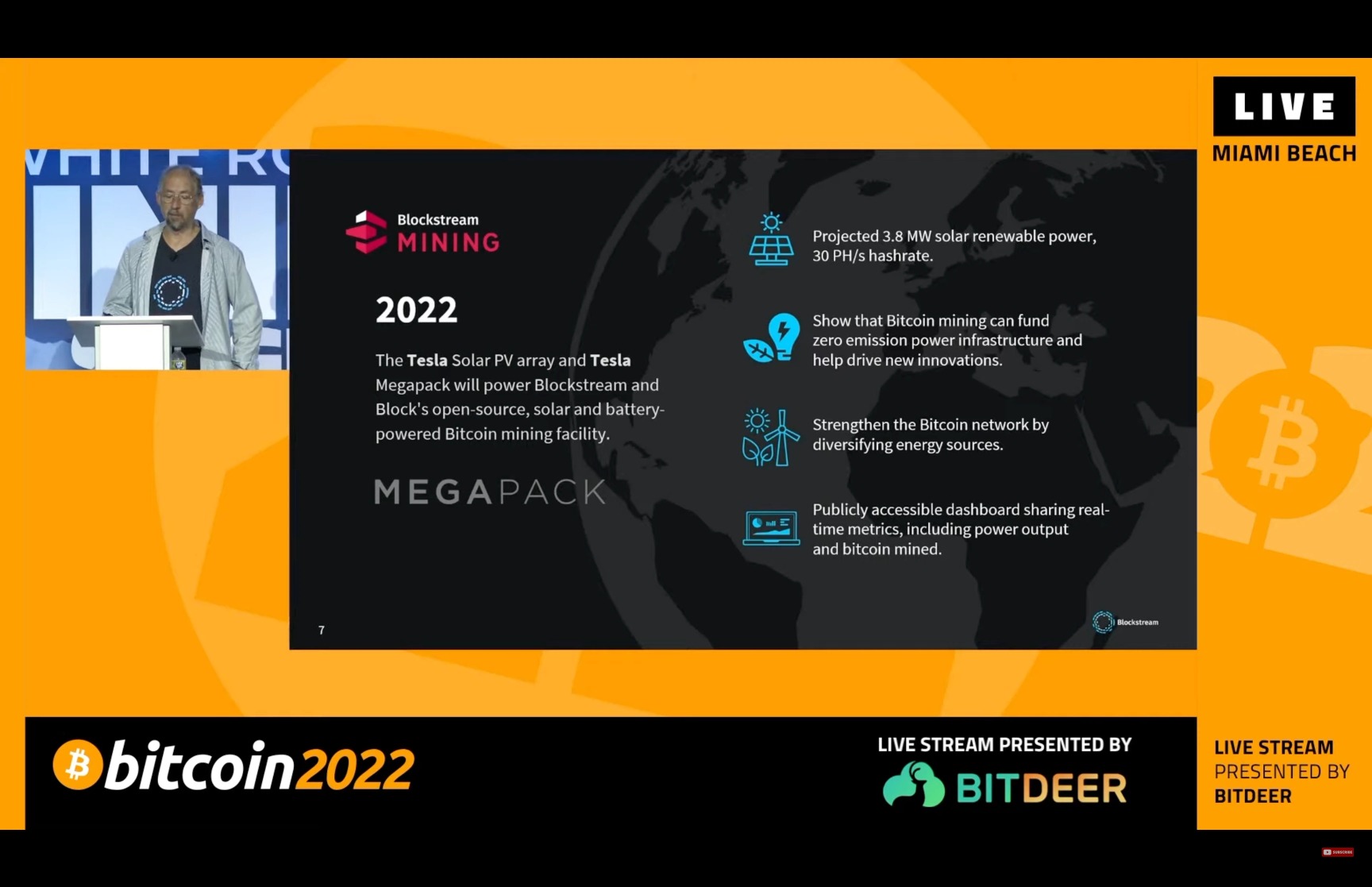
Blockstream CEO Adam Back emphasized that he believes this project is a way to prove to the world that Bitcoin solves the energy crisis rather than creating one.
"Bitcoin… can serve as a base load… it can actually make projects more profitable and bring greater electricity infrastructure to the world. Essentially, Bitcoin should be a financing model for expanding electricity infrastructure."
Distributed Charging Project Showcased for the First Time
The primary connection between Bitcoin and energy is now expanding beyond typical mining use cases.
The exhibition hall at the Bitcoin 2022 conference showcased a project called Distributed Charge, developed by hardware engineer Andy Schroder, aimed at achieving real-time energy pricing and instant payments between any devices, anywhere in the world, through the creation of hardware devices, open-source software, and protocols, making Bitcoin a local payment method for peer-to-peer energy markets.
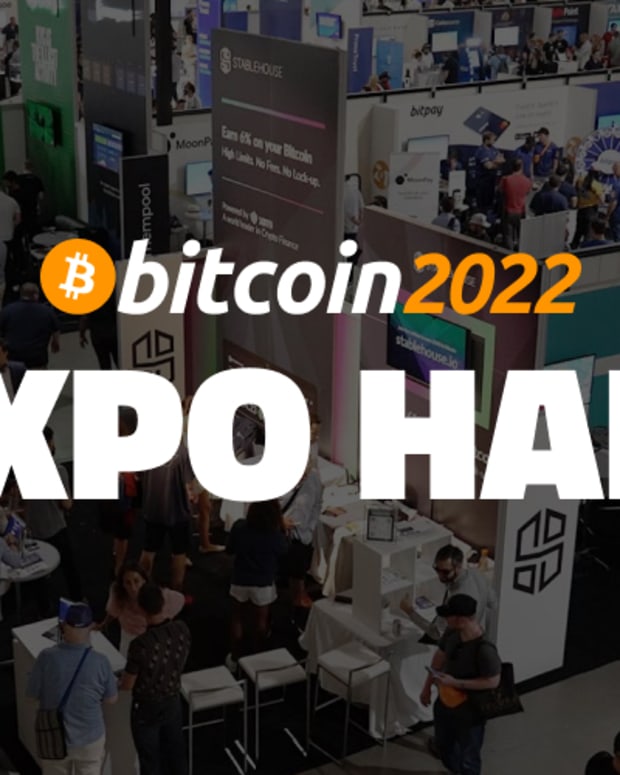
Currently, the project is using Tesla electric vehicles to test this concept. It is reported that Schroder is establishing a streaming payment system between nodes integrated into Tesla and nodes integrated into charging stations using the Lightning Network. With this system, Tesla owners can easily trade energy privately without a third-party platform.
These Three Countries/Regions are Advancing Bitcoin Adoption
At the Bitcoin 2022 conference, former Blockstream Chief Strategy Officer Samson Mow brought three guests on stage to introduce the latest updates on their respective countries/regions' Bitcoin adoption plans.
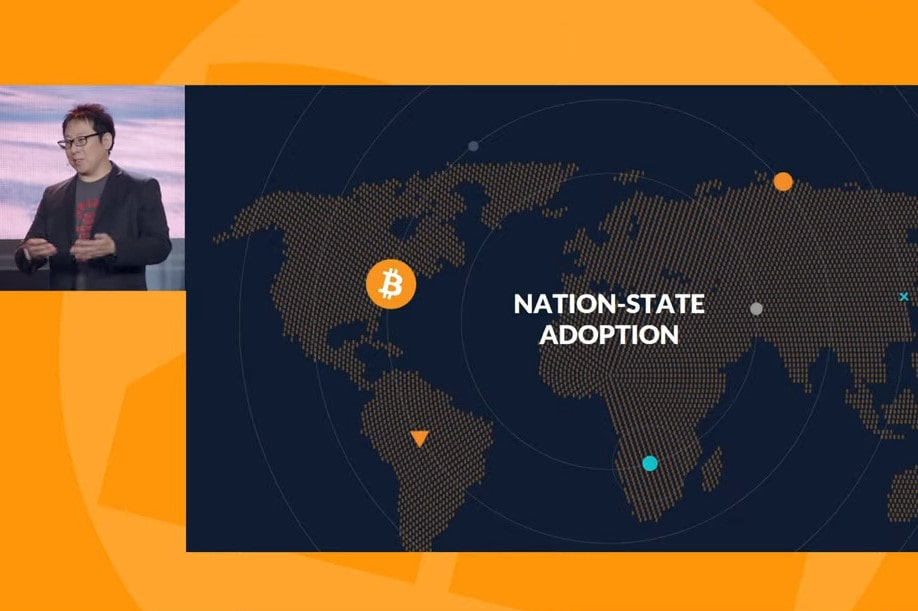
Although the Central Bank of Honduras clarified weeks ago that the country would not adopt Bitcoin as legal tender, officials from Próspera, an "island development hub" in Honduras, announced that Bitcoin has been recognized as legal tender in the region, stating, "Prospera's flexible regulatory framework allows residents, businesses, and governments to engage in crypto innovation and use Bitcoin."
Miguel Filipe Machado de Albuquerque, President of the Madeira region in Portugal, announced that investors in Madeira can trade Bitcoin without paying income tax and noted that businesses are offered a tax rate as low as 5%. "I believe in the future, I believe in Bitcoin," but he did not specify that Bitcoin is legal tender in the region.
Finally, Mow invited Mexican Senator Indira Kempis to the stage to introduce the latest developments regarding the country's proposed cryptocurrency legislation. She noted that she would focus on drafting a bill to make Bitcoin legal tender, stating, "In two months, I will propose amendments to the fintech and currency laws. I look forward to sitting down with our president for coffee and discussing this plan—Bitcoin as legal tender in Mexico."
However, the Mexican government may not pass cryptocurrency legislation in the short term. Last October, Mexican President Andrés Manuel López Obrador, when asked by reporters whether Mexico would follow El Salvador's lead in making Bitcoin legal tender, expressed that cryptocurrencies like Bitcoin still have issues related to tax evasion, making it unlikely to follow El Salvador's footsteps.



